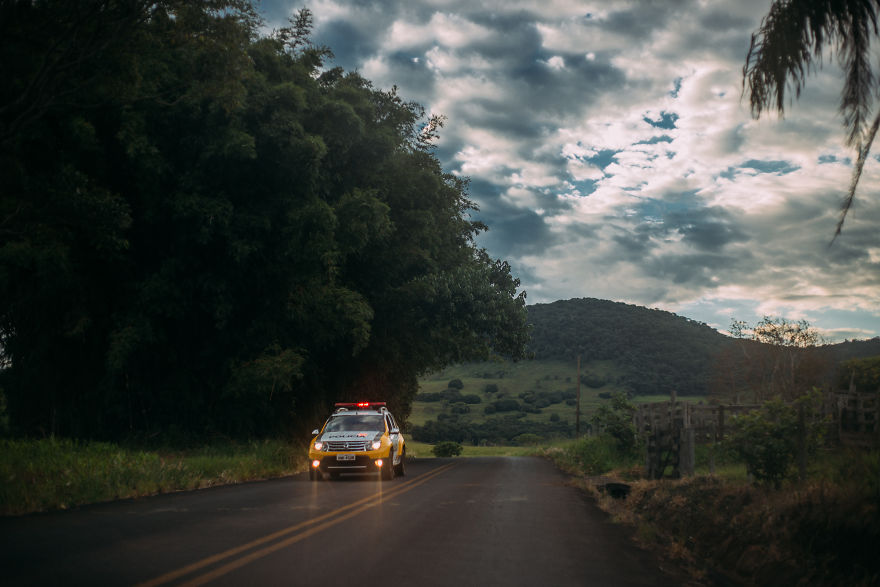Breaking Covid-19 Rules? I Researched Everything That Could Happen To You!
268views
In Feb 2020, we were going about our daily lives when an escalation of the coronavirus saw restrictions being placed on our movements in Australia. As the health crisis has unfolded rapidly, developments and new laws have been imposed for our protection.
National and interstate borders are strictly controlled and people are quarantined or expected to self isolate if they have tested positive or have symptoms of COVID- 19. Social distancing, the capping of outdoor gatherings and restrictions placed on moving within states have seen us spending more time at home.
There is some confusion about the Australian Federal and State government’s legal power to enforce restrictions on our freedom, and what the consequences are if we ignore these new rules.
The Legal Framework
On January 30, 2020, the World Health Organisation (WHO) declared an International Public Health Emergency due to the outbreak of COVID-19. On 11 March 2020, the outbreak was then acknowledged as a pandemic.
Under sections 477 and 478 of the Biosecurity Act 2015, the Australian Minister for Health has broad emergency powers. They can give directions which will prevent or control the spread of COVID- 19, either nationally or internationally. Based on these powers, a human biosecurity emergency was declared. This is to be in force from 18 March 2020 for three months.
Under the legal guidelines for a biosecurity emergency, the public may be directed to restrict movement, evacuate certain places or close premises. In addition, each state has its own public health and emergency response laws.
How This Looks in Western Australia
The WA Government has since declared a State of Emergency under the Emergency Management Act and a Public Health Emergency under the Public Health Act.
This move has given the WA Government, Police Force and the Chief Health Officer power to enforce quarantine and self-isolation measures as necessary.
In addition, the WA Government has introduced amendments to the Criminal Code specific to the COVID-19 coronavirus pandemic.
Based on these amendments there are severe penalties for those who deliberately assault or threaten frontline workers in context of the COVID-19 pandemic. Under these new laws, a maximum penalty of seven years jail is possible for people who deliberately expose others to the virus.
To ensure that people comply with quarantine orders, community gatherings, required business closures, public safety and border closures, a special WA Police squad has been mobilised.
Police have been given the right to impose on the spot fines of $1,000 for individuals disobeying the rules. Businesses who are not complying can be fined $5,000. Under the Emergency Management Act, the maximum penalty of $50,000 for individuals can be applied in court.
Around the Country
Depending on the extent of the non compliance or the danger to the community, each state has different penalties for both individuals and corporations. These penalties can range from on the spot fines, to enforced quarantine or imprisonment.
Queensland
In Queensland, the police are entitled to issue on-the-spot fines of $1,334.50 for individuals and $6,672.50 for businesses breaking the rules.
Under the Public Health Act 2005, people who fail to comply with quarantine orders could receive fines of up to $13,345 and be forced to quarantine.
NSW
Harsh laws in NSW mean that people who do not comply with the rules can be imprisoned for six months with a fine of up to $11,000, and a fine of $5,500 for each day of non compliance. For businesses, maximum fines are $55,000.
Tasmania
In Tasmania, non-compliance can mean a maximum fine of $16,800 or six months imprisonment.
Victoria
Police in Victoria have the discretion to issue on-the-spot fines of $1,652 for individuals, and $9,913 for businesses who fail to comply. The court can impose much heavier fines from $20,000 to $100,000, or even imprisonment.
Northern Territory
Infringement penalties in NT is $1,099 for individuals, and $5,495 for businesses.
ACT
Penalties for individuals include a maximum fine of $8,000 while businesses can attract a $40,500 fine.
South Australia
In South Australia, gatherings of more than 10 people are banned. Those individuals who do not comply can receive an on the spot fine of $1000 and businesses a fine of $5000.
While this can be a time of confusion, if you are unsure of your legal responsibilities and the risks, you should talk to an experienced lawyer for advice.
More info: chamberslegal.com.au
Police Car
Image credits: www.chamberslegal.com.au
Breaking Covid Rules is against the law and can land you with prison time or big fines. Don’t do it!
In Feb 2020, we were going about our daily lives when an escalation of the coronavirus saw restrictions being placed on our movements in Australia. As the health crisis has unfolded rapidly, developments and new laws have been imposed for our protection.
National and interstate borders are strictly controlled and people are quarantined or expected to self isolate if they have tested positive or have symptoms of COVID- 19. Social distancing, the capping of outdoor gatherings and restrictions placed on moving within states have seen us spending more time at home.
There is some confusion about the Australian Federal and State government’s legal power to enforce restrictions on our freedom, and what the consequences are if we ignore these new rules.
The Legal Framework
On January 30, 2020, the World Health Organisation (WHO) declared an International Public Health Emergency due to the outbreak of COVID-19. On 11 March 2020, the outbreak was then acknowledged as a pandemic.
Under sections 477 and 478 of the Biosecurity Act 2015, the Australian Minister for Health has broad emergency powers. They can give directions which will prevent or control the spread of COVID- 19, either nationally or internationally. Based on these powers, a human biosecurity emergency was declared. This is to be in force from 18 March 2020 for three months.
Under the legal guidelines for a biosecurity emergency, the public may be directed to restrict movement, evacuate certain places or close premises. In addition, each state has its own public health and emergency response laws.
How This Looks in Western Australia
The WA Government has since declared a State of Emergency under the Emergency Management Act and a Public Health Emergency under the Public Health Act.
This move has given the WA Government, Police Force and the Chief Health Officer power to enforce quarantine and self-isolation measures as necessary.
In addition, the WA Government has introduced amendments to the Criminal Code specific to the COVID-19 coronavirus pandemic.
Based on these amendments there are severe penalties for those who deliberately assault or threaten frontline workers in context of the COVID-19 pandemic. Under these new laws, a maximum penalty of seven years jail is possible for people who deliberately expose others to the virus.
To ensure that people comply with quarantine orders, community gatherings, required business closures, public safety and border closures, a special WA Police squad has been mobilised.
Police have been given the right to impose on the spot fines of $1,000 for individuals disobeying the rules. Businesses who are not complying can be fined $5,000. Under the Emergency Management Act, the maximum penalty of $50,000 for individuals can be applied in court.
Around the Country
Depending on the extent of the non compliance or the danger to the community, each state has different penalties for both individuals and corporations. These penalties can range from on the spot fines, to enforced quarantine or imprisonment.
Queensland
In Queensland, the police are entitled to issue on-the-spot fines of $1,334.50 for individuals and $6,672.50 for businesses breaking the rules.
Under the Public Health Act 2005, people who fail to comply with quarantine orders could receive fines of up to $13,345 and be forced to quarantine.
NSW
Harsh laws in NSW mean that people who do not comply with the rules can be imprisoned for six months with a fine of up to $11,000, and a fine of $5,500 for each day of non compliance. For businesses, maximum fines are $55,000.
Tasmania
In Tasmania, non-compliance can mean a maximum fine of $16,800 or six months imprisonment.
Victoria
Police in Victoria have the discretion to issue on-the-spot fines of $1,652 for individuals, and $9,913 for businesses who fail to comply. The court can impose much heavier fines from $20,000 to $100,000, or even imprisonment.
Northern Territory
Infringement penalties in NT is $1,099 for individuals, and $5,495 for businesses.
ACT
Penalties for individuals include a maximum fine of $8,000 while businesses can attract a $40,500 fine.
South Australia
In South Australia, gatherings of more than 10 people are banned. Those individuals who do not comply can receive an on the spot fine of $1000 and businesses a fine of $5000.
While this can be a time of confusion, if you are unsure of your legal responsibilities and the risks, you should talk to an experienced lawyer for advice.
More info: chamberslegal.com.au
Police Car
Image credits: www.chamberslegal.com.au
Breaking Covid Rules is against the law and can land you with prison time or big fines. Don’t do it!
268views
Share on Facebook




-4
1